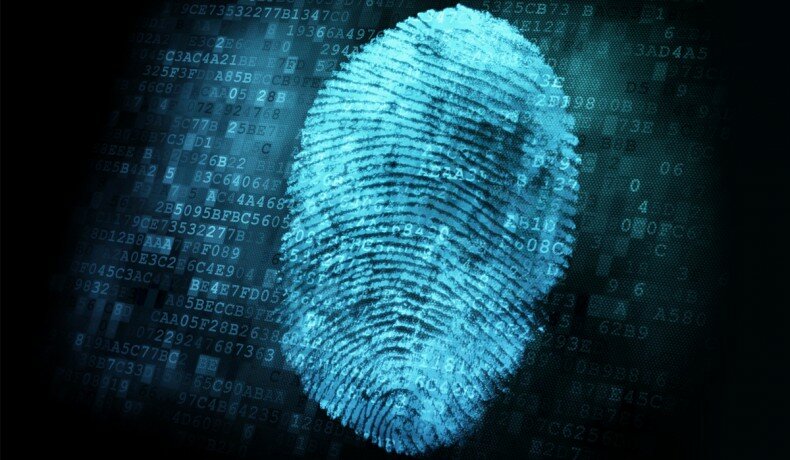By Abrar Hamza –
Government’s biometric delight turns into telecom’s plight
One may not be surprised to see an uneducated person in Pakistan discussing the world’s most advanced technology biometric, which is still unfamiliar to even most developed countries. All thanks to our policy makers.
Pakistan is the only country in the entire world where the cellular subscribers’ registration is being done through biometric, and if the subscribers do not comply their services will be shut off. So, even today the most interesting fact about the Pakistani telecommunication revolution is that the international cellular operators remain apparently unaware about their regulator’s approach.
At the time of introduction of cellular services in Pakistan, the regulatory policies were quite lax that resulted in a unique situation when SIMs were distributed like candies. And when the national subscribers’ base was about to touch the 100 percent tele-density, Pakistan Telecommunication Authority (PTA) tightened the noose around the operators.
 Peshawar carnage in Army Public School in last December changed the regulator’s stance once again. The government ordered all cellular companies to register the whole subscribers’ base with biometric technology as law enforcement agencies (LEAs) and policy makers considered unregistered or fake registered SIMs a primary tool of terrorists.
Peshawar carnage in Army Public School in last December changed the regulator’s stance once again. The government ordered all cellular companies to register the whole subscribers’ base with biometric technology as law enforcement agencies (LEAs) and policy makers considered unregistered or fake registered SIMs a primary tool of terrorists.
The SIMs’ re-verification process is being progressed throughout the country with the biometric verification according to that a person can be uniquely identified by evaluating one or more distinguishing biological trait. Unique identifiers include fingerprints, hand geometry, earlobe geometry, retina and iris patterns, voice waves, DNA, and signatures.
But the million dollar question is whether this recent corrective measure to curb terrorism will work to the desired level or is it just to cost billions of rupees to cellular operators?
Some industry experts believe that the said exercise will not bring desired results as terrorists are far ahead from the working procedures of LEAs, and it is one of the possibilities that terrorist organizations may have arranged the provisions which may include paid fake verification of SIMs.
Hiring of poor individuals for fake registration could be another option for them or they may rule out the option of using GSM technology since the 3G and 4G technologies have opened many new ways to dodge the LEAs.
The above mentioned notions carry enough weight which can be gauged by the surprising facts the Peshawar incident showed as LEAs said the six terrorists who stormed the school in Peshawar were using phones registered to one woman who had no obvious connection to the attackers. It is important to mention here that the woman obtained six SIMs of all cellular companies operating in Pakistan through the biometric verification process.
 Our LEAs should know that next generation technologies have opened up a variety of interactive options for mobile users which can be used easily through connecting mobile data or Wi-Fi on mobile phone devices. For instance, Skype, Facebook Messenger, Viber, Line, WhatsApp, Tango and as many other social media platforms are providing free video and voice chatting facility to the users which are clearly untraceable, so terrorist organizations seemingly don’t need to use GSM (SIM) technology for their unlawful activities at the time when other ‘safe and sound’ options are easily available.
Our LEAs should know that next generation technologies have opened up a variety of interactive options for mobile users which can be used easily through connecting mobile data or Wi-Fi on mobile phone devices. For instance, Skype, Facebook Messenger, Viber, Line, WhatsApp, Tango and as many other social media platforms are providing free video and voice chatting facility to the users which are clearly untraceable, so terrorist organizations seemingly don’t need to use GSM (SIM) technology for their unlawful activities at the time when other ‘safe and sound’ options are easily available.
Apparently, the corrective measures to curb terrorism may help the government, but the trickle down impact will unlikely create a positive impression in terms of Foreign Direct Investment (FDI) as the international investors analyze the regulatory and business friendly atmosphere carefully before taking any step, and for Pakistan the situation is not appealing.
The business doing cost, especially for the telecom sector, for foreign investors in Pakistan is being augmented day by day by irrational policies of the rulers. The all five cellular operators in Pakistan have already raised concerns, bluntly or softly, against discouraging maneuvering (frequent alteration in regulations) of PTA which according to them eroding their capital aggressively.
A telecom official, requesting anonymity, said frequent alterations in SIMs’ sales mechanism by the government during past three to four years brought complexities for the telecom companies as they had to change their marketing strategies accordingly and reorganize their Human Resource (HR) related procedures. Cellular operators in Pakistan also witnessed significant decline in churn rate due to the bio-metric SIM verification and activation system, he informed.
The subdued growth of new SIMs’ sales is not the only setback that companies are facing they also have to bear capital expenditures in terms of the installation cost of a complete biometric equipment worth between Rs 35,000 to Rs 40,000 at every point of sale (including service centres, retailers and franchises).
For example, Telenor disclosed in its financial report that the number of subscriptions decreased by 195,000 by the end of September 2014 mainly due to the nationwide implementation of biometric verification of all new sales of SIMs from August 1, 2014.
 Telecom sector has so far spent Rs2.5 billion on biometric re-verification of SIMs while telecom sector has invested almost $13 billion in the country since 2003. During the last two SIM verification drives in 2009 and 2011, around Rs 22 billion has been spent by the telecom industry.
Telecom sector has so far spent Rs2.5 billion on biometric re-verification of SIMs while telecom sector has invested almost $13 billion in the country since 2003. During the last two SIM verification drives in 2009 and 2011, around Rs 22 billion has been spent by the telecom industry.
The plight of the cellular industry in Pakistan can easily be judged through the figures the sector recorded in year 2014. The constantly growing telecom density in Pakistan was subdued quite much in this year as firm corrective measures of the government reversed the total numbers of mobile users in Pakistan to 73.11 percent at the end of 2014. According to PTA, total users of mobile phones in Pakistan declined to 73.11 percent (per 100 people) at the end of 2014 while it stood at 76.46 percent in the period ended Fiscal Year 2013-14 (FY14).
It is interesting to note that the government has yet to sell out a remaining next generation technology spectrum. The government is hopeful of fetching a million of US dollars from selling this spectrum. But new entrants will unlikely approach to buy this remaining spectrum concerning ongoing predicaments of cellular operators.
Moreover, Pakistan stands at number 47 amongst world poverty list of 184 countries that is recently revealed by the Global Finance Magazine. In this situation when Pakistan is in a dire need of foreign support, the government instead of facilitating foreign investors is continuously dispiriting the FDI by making unsupportive policies.
Last year, PTA auctioned 3G and 4G licenses to the cellular operators which they acquired against $1.128 billion, but soon after the introduction of next generation technologies the government put the operators into another complex situation by ordering them to re-verify almost 14 million subscribers’ data through bio-metric on their own expenses. This sudden policy twist created difficulties for the cellular operators who were busy in network up gradation for 3G/4G roll out, and they had to discontinue the planned operations just to cater to the government’s orders. They had to shift their 3G/4G capital expenditure into SIM’s re-verification. It is high time the government should revisit its policies and try to find out alternate solutions to curb the terrorism rather than dumping all garbage just on cellular operators.
The writer is telecom sector reporter based in Karachi































































































